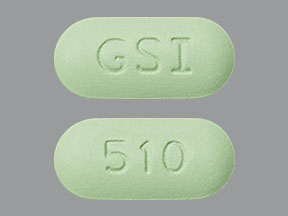Genvoya Interactions
There are 700 drugs known to interact with Genvoya (cobicistat/elvitegravir/emtricitabine/tenofovir alafenamide), along with 10 disease interactions, and 3 alcohol/food interactions. Of the total drug interactions, 334 are major, 344 are moderate, and 22 are minor.
- View all 700 medications that may interact with Genvoya
- View Genvoya alcohol/food interactions (3)
- View Genvoya disease interactions (10)
Most frequently checked interactions
View interaction reports for Genvoya (cobicistat / elvitegravir / emtricitabine / tenofovir alafenamide) and the medicines listed below.
- Adderall (amphetamine / dextroamphetamine)
- amlodipine
- aspirin
- atorvastatin
- Biktarvy (bictegravir / emtricitabine / tenofovir alafenamide)
- bupropion
- clonazepam
- doxycycline
- duloxetine
- folic acid
- gabapentin
- ibuprofen
- levothyroxine
- lisinopril
- losartan
- metformin
- metoprolol
- multivitamin
- naproxen
- omeprazole
- pantoprazole
- pravastatin
- prednisone
- rosuvastatin
- sildenafil
- tamsulosin
- trazodone
- valacyclovir
- Vitamin B12 (cyanocobalamin)
- Vitamin D3 (cholecalciferol)
Genvoya alcohol/food interactions
There are 3 alcohol/food interactions with Genvoya (cobicistat / elvitegravir / emtricitabine / tenofovir alafenamide).
Genvoya disease interactions
There are 10 disease interactions with Genvoya (cobicistat / elvitegravir / emtricitabine / tenofovir alafenamide) which include:
- hepatic dysfunction
- renal dysfunction
- hepatitis B
- hepatotoxicity
- creatinine clearance
- hemodialysis
- renal dysfunction
- bone toxicity
- liver disease
- renal dysfunction
More about Genvoya (cobicistat / elvitegravir / emtricitabine / tenofovir alafenamide)
- Genvoya consumer information
- Compare alternatives
- Pricing & coupons
- Reviews (129)
- Drug images
- Side effects
- Dosage information
- Patient tips
- During pregnancy
- Support group
- FDA approval history
- Drug class: antiviral combinations
Related treatment guides
Drug Interaction Classification
| Highly clinically significant. Avoid combinations; the risk of the interaction outweighs the benefit. | |
| Moderately clinically significant. Usually avoid combinations; use it only under special circumstances. | |
| Minimally clinically significant. Minimize risk; assess risk and consider an alternative drug, take steps to circumvent the interaction risk and/or institute a monitoring plan. | |
| No interaction information available. |
Further information
Always consult your healthcare provider to ensure the information displayed on this page applies to your personal circumstances.


